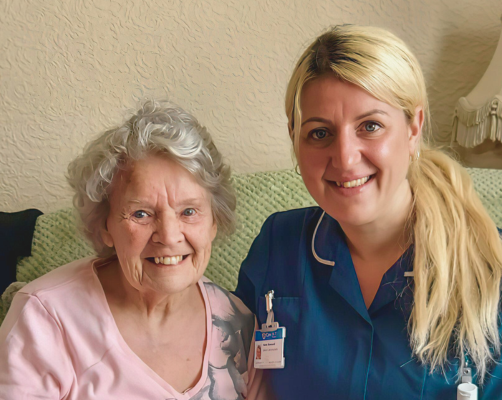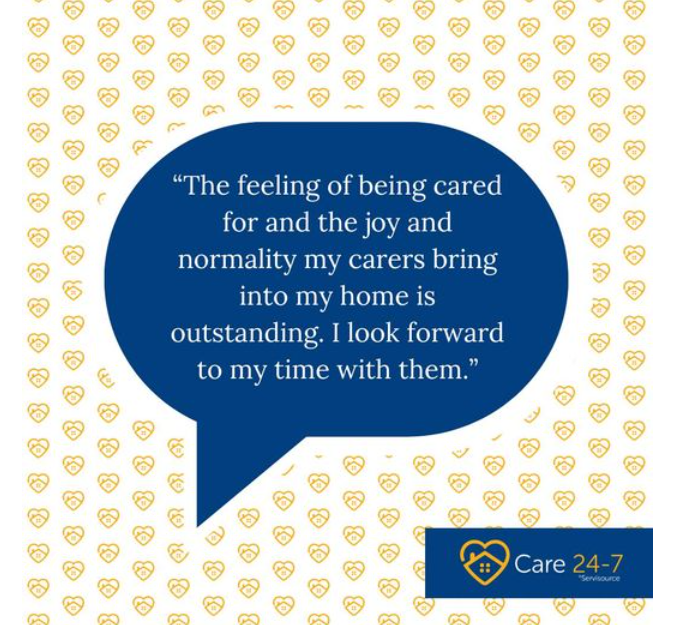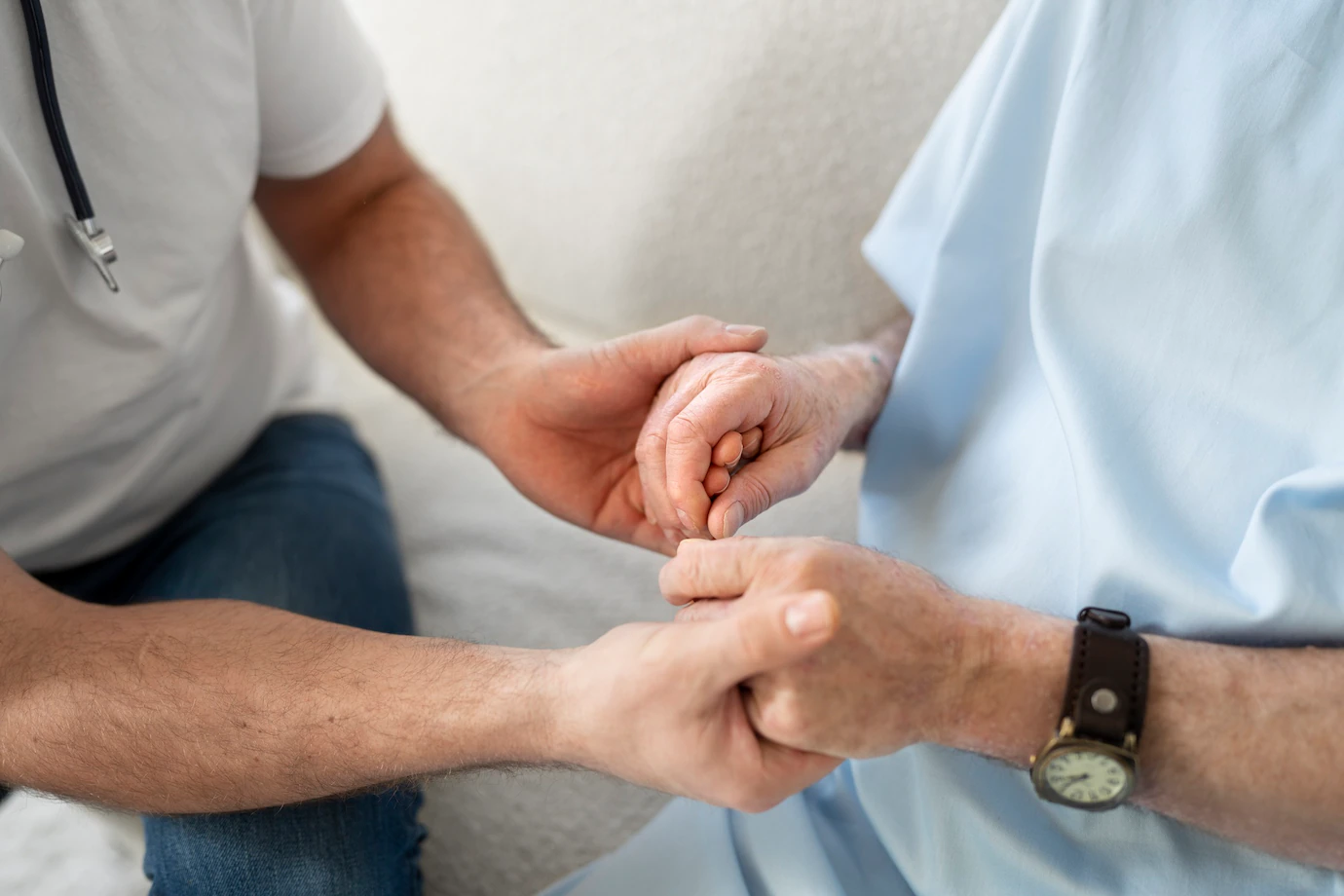What is Defined as Home Care
What is defined as home care? Home care services, also known as domiciliary care, are when care workers travel to the homes of individuals in need of assistance. This care is arranged through the local council or through private agencies. They cover a wide range of services such as personal care, respite care, specialist dementia care and end-of-life care.
With the right knowledge and education, healthcare professionals, caregivers, and families can all make informed decisions on how to best provide care and assistance to a loved one living at home. By understanding the different types of home care services available, everyone can work towards improving the quality of life for those who need it the most.
Individuals who use our services range from older individuals, to those with physical disabilities, dementia or those who are nearing the end of their life. Care is also available for those who are returning from a stay in hospital offering respite for family carers.
Jean Pickles, Care 24-7’s Senior Manager outlines her definition of home care and why it is so beneficial in helping individuals live their lives in comfort and safety.
Jean Pickles, Senior Manager of Care 24-7
Over the last five years there has been greater nationwide focus on the emotional and physical benefits of supporting individuals to remain at home, aiding faster physical recovery and psychological respite in familiar surroundings. There is a deeper understanding of the needs of those individuals living with dementia and how their lives can be enriched with the right support to flourish at home without the upheaval of moving to a new place away from the memories that remain.
At Care 24-7 home care is our passion. We engage and support individuals and loved ones to be in control of their choices, enabling them to live their best life in the comfort of their home with a caring circle around them. Care 24-7 offers a range of support, delivered by a team who arrive with a friendly face and the time to listen, helping with the things that may no longer be manageable and supporting individuals to be in control of their own life.
From years working in the social care sector and seeing the work that is carried out every minute of every day, I have seen first-hand the acts of kindness and compassion and the difference the home care teams make to individuals’ lives. For those who live alone and have no support circle, the home care team may be their only lifeline. It is an unseen, under recognised social service, but our team are deeply valued and recognised as special people by our clients and by Care 24-7.
Why You Can Trust Us
At Care 24-7 we are committed to providing a service of excellence. This means providing high quality, safe and effective care which treats individuals with compassion, dignity and respect.
Our experience means that we understand the overwhelming task of finding the right home care provider, whether for a friend or family member. We do our utmost to support you with all the help, advice and information you may need to give you the confidence to make your own decisions right from the start of the process.
Personal Care
Personal care is a home care service that provides assistance to individuals. It includes daily activities, such as bathing, dressing, grooming, and hygiene needs. It is designed to help seniors, those with disabilities, or anyone that needs assistance to maintain independence in their own home.
This type of care can also include meal preparation, light housekeeping, laundry, errands, companionship, mobility and transfers, as well as providing assistance with activities of daily living, such as grocery shopping. They can also provide medication reminders and help with medication administration.
Care workers can provide transportation support to medical appointments and social activities, as well as help with organising and maintaining personal records and bills. As well as practical support, they offer emotional support, comfort, and safety for individuals who require assistance.
Types of Personal Care:
Bathing/Grooming Assistance
Light Housekeeping
Meal Preparation
Respite Care
Respite care is short-term relief for primary caregivers, allowing them to take a break from their caregiving duties. It can be provided in a variety of settings, including in-home care, adult day services, or overnight care in a facility. It can be arranged on a temporary or more permanent basis. This depends on the needs of the caregiver and the care recipient.
This service guarantees that your loved one will be looked after by a qualified healthcare provider, providing peace of mind to the main caregiver, who may be a relative and is unable to provide care for a certain amount of time.
It provides an opportunity for the family member to get a better understanding of the care their loved one needs, allowing them to make informed decisions about the best care support for them in the future.
Caring for a loved one full-time can be an emotionally, physically, and mentally challenging experience. It can be difficult to manage a full-time caregiving role while also tending to other responsibilities, such as family and work obligations. In these cases, respite care can provide a much-needed break for family members knowing their loved one is in safe, capable hands. This rest period can be used to tend to other duties, or to simply take some time to relax and recharge.
Dementia Care
Dementia care services can be provided through home care services. Home care services allow a person with dementia to receive care and support in the comfort and privacy of their own home. Assistance can include help with daily living activities (such as bathing, dressing, and meal preparation), help with managing medications, and can also be a source of companionship. It is care that focuses on the emotional and psychological needs of the individual.
Dementia Care Services
Supervision and safety monitoring: Ensures alarms are functioning and house safety features are installed.
Assistance with activities of daily living: Assistance with bathing and cleaning.
Assistance with nutrition and meal preparation: Ensures medicine and food is taken correctly.
Cognitive stimulation activities: Such as puzzle making, creating art or listening to music.
If you would like to read more about dementia and in-home care, our blog The Benefits of In-Home Care for Elderly Adults with Dementia will provide more information.
Palliative Care
Palliative care, also known as end-of-life care, is provided to an individual who is in the last stages of life. It is often provided by home care services and typically includes physical, emotional, and spiritual support. End-of-life care services can range from providing comfort and companionship to helping with medical and practical tasks to providing help with daily living activities.
End-of-care services also involve providing support to the individual and their family during this difficult time. This includes assistance in planning end-of-life wishes as well as emotional and spiritual support.
Benefits of Palliative Care
Flexibility: It allows patients to remain in familiar surroundings with family and friends, while still receiving specialised medical and emotional care.
Cost Savings: Generally speaking, palliative care at home is less expensive than care in a hospital or hospice.
Quality of Life: Many individuals prefer to stay in the familiar environment of their own home, where they can maintain the hobbies, activities, and routines that they value while feeling comfortable.
Having a thorough understanding of the different types of in-home care available and their associated benefits can help to make an informed decision about the type of care that is best for loved ones. Consider the various types of in-home care services such as companionship, personal care, and medical care and assess which type is most appropriate for the particular situation. Research the credentials and experience of any potential in-home care providers. Home care ensures loved ones can remain enjoying their life while also gaining care and help in the comfort of their own home by the right people in the right place.
If you are considering home care, contact us today.




















































